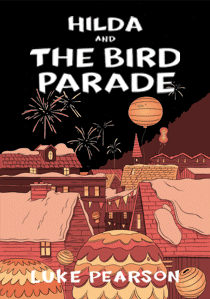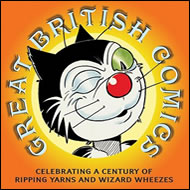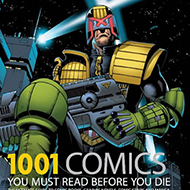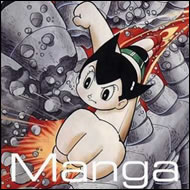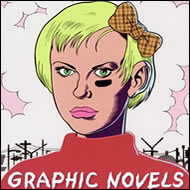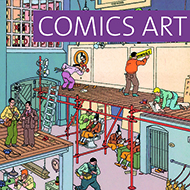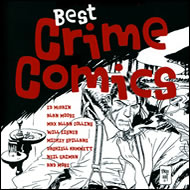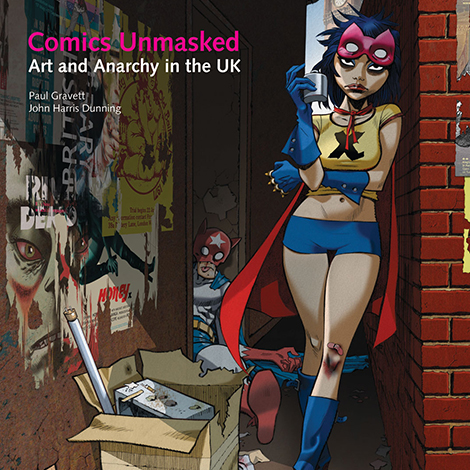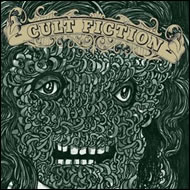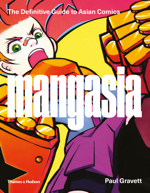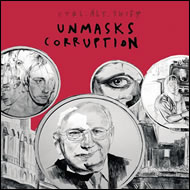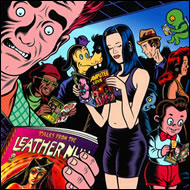Comics Britannia:
Part 3 - Anarchy In The UK
Comics Britannia is a three-part BBC4 television series celebrating the classic British comic strips of the past 70 years. First broadcast in September 2007, the series featured interviews with the creators of iconic characters from The Beano, Bunty, Commando, Viz, 2000AD and more. Paul Gravett contributed a series of three articles to supplement each programme, which were originally featured on the BBC4 dedicated Comics Britannia website, as well as appearing as a ‘Comics Brainiac’ on the programme itself.
Discover more about Britain’s amazing comics - including full pages of beautifully reproduced original artwork - in the lavish, large format Gravett & Stanbury compendium Great British Comics: Celebrating A Century Of Ripping Yearns & Wizard Wheezes, full of all your favourites past and present and the perfect Christmas comics gift for the whole family!
Comics’ Growing Pains
Comics for adults are nothing new in Britain and emerged as cheap reading matter for the newly literate urban workforce of the late 19th century. Popular Victorian comics served up cheeky social satire with characters such as Ally Sloper, and there were cameos by celebrities, and even royalty. It was only later, around the time of World War I, that the British market for comics aimed at children truly took off. This led adults increasingly to look to the music halls, cinemas and elsewhere for new forms of entertainment and to associate most comics with kids’ stuff.
This is why by the 1970s a new generation of creators were thirsting for weekly newsstand comics to ‘grow up’. But first the medium would have to go through a postponed, surly, spotty, hormone-frenzied adolescence. Eventually, writers and artists would start winning back that long-lost older readership by expanding the format, content and ambition of comics into graphic novels, extraordinary long-form, visual-verbal books, some for adults only, equal to the best in any other medium.
Many of these creators saw the signs of rebellion from the late 1970s in underground comics (or comix, as in ‘X’-rated) which were imported from America’s West Coast hippy counterculture, then pirated and imitated in Britain. The seeds sown here would blossom later, but in the early 1970s our moral guardians swiftly quashed these uncensored taboo-breaking tales of sex, drugs and rock’n'roll by prosecuting such offenders as Nasty Tales, or OZ with its notorious School Kids’ issue.
Subvert From Within
Another route was to subvert from within the mainstream. In 1976, following the success at IPC of all-war weekly Battle, writer and editor Pat Mills seized the chance to devise a comic that could offer children some of Hollywood’s more realistic edge, entitled Action. In this pre-video era, children who couldn’t watch Dirty Harry or Jaws could read about mean working-class agent Dredger or ravenous shark Hookjaw.

Mills and his team imported street life, football hooliganism and social unrest into serials such as Kids Rule OK and Look Out For Lefty. Their struggling underdogs tapped into teenagers’ resentment at authority and proved phenomenally popular. Despite this, when a media panic erupted over a cover image, incorrectly coloured to suggest that an armed delinquent was assaulting a policeman, IPC caved in and cancelled the strong-selling title. When a sanitised Action returned, readers felt betrayed and abandoned it.
Meanwhile, Pat Mills made the darker, more dangerous streak in Action more palatable by transposing it into futuristic fantasies in 2000AD, launched in 1977, the year Star Wars made science fiction a mass-market success. Far from idle daydreaming, sci-fi can confront present-day problems by extrapolating them into the future, such as projecting Britain’s civil unrest at the time into an unaccountable 21st-century police state in Judge Dredd. Cleverly, however extreme his enforcement methods, meting out instant judgment and punishment, Mega-City One’s future-cop could deflect criticism because, after all, he was a cop upholding the law.

Rude, Crude & Lewd
Nevertheless, there were limits on how far comics could grow up within the big traditional children’s companies; it would take independent maverick publishers and creators to go much further. In the DIY spirit of punk bands and fanzines, brothers Chris and Simon Donald started Viz in 1979 from their Newcastle bedroom as a sarcastic piss-take of everything that was not permitted in safe, politically correct kids’ weeklies.

They excelled at swearing, farting, boozing, toilet humour, the sort of real uninhibited Geordie humour they knew on the streets and in clubs and pubs. From boozy nymphos Fat Slags to lust-driven, no-hoper Sid the Sexist, nobody escaped their pitiless satirical mauling. From a mere 150 copies of the first issue, Viz skyrocketed to over one million, becoming the third biggest-selling magazine in Britain. In another independent title, Warrior, spearheaded in 1982 by Dez Skinn, writer Alan Moore and artist David Lloyd responded to their anger at Thatcher’s regime by imagining a near-future Fascist Britain in which an anarchist, code-named V and disguised in a Guy Fawkes mask, strikes back at the church, police, media and politicians to restore freedom to the people.

From 1983, Paul Gravett and Peter Stanbury promoted many more new talents through Escape Magazine, such as Eddie Campbell, Neil Gaiman and Dave McKean. Later, in 1988, Brett Ewins and Steve Dillon’s music-based comic magazine Deadline both reflected and inspired the acid-house rave scene through Alan Martin and Jamie Hewlett’s Tank Girl, a ‘shero’, standing up for female rights, with a shaved head, big boots and a kangaroo boyfriend.

British Comics On The World Stage
These and other talents who reinvigorated British comics in 2000AD and Warrior were heavily influenced by America’s underground comix and superhero comic books. In the 1980s, they began to be head-hunted by the major New York corporations. This Brit Pack brought an irreverent, outsider’s perspective and a real-world twist to the formula-ridden superhero genre. Adding depths of psychology and politics, Alan Moore and Dave Gibbons portrayed in Watchmen how a super-powered and costumed ‘hero’ might really behave as an alien egomaniac or a psychotic vigilante. Their twelve Watchmen comics were afterwards compiled into a paperback book and rebranded as a graphic novel, a term and concept which became the buzzword in the book market. Britain was seen as home to some of the most intelligent, inspired practitioners of the medium, once their US output was exported internationally.

Stretching The Limits
Conceiving their comics as books has finally liberated writers and artists from the tyranny of producing endless, ephemeral, neutered material to deadlines on an anonymous assembly line. Bryan Talbot took four years to craft Alice In Sunderland, his personal, post-modern performance interweaving the lives of Lewis Carroll and his muse Alice Liddell with the histories and echoes of the Talbot’s home city of Sunderland.

After redefining the superhero and other genres, Alan Moore turned to that most despised genre, pornography. With his wife Melinda Gebbie he spent some 16 years on Lost Girls. Allowing fairytale heroines Alice, Wendy and Dorothy to grow up into complex adult women, Moore and Gebbie explore their erotic awakenings in a sophisticated celebration of consensual sexual pleasures. Now that creators can devote themselves to expanding the medium, British comics are coming into their own and their future has never looked more promising or more provocative.
Posted: December 9, 2007This article originally appeared as part of the BBC 4 television Comics Britannia season in September 2007 celebrating UK comics. This article appeared on the dedicated BBC4 Comics Britannia web-site.

